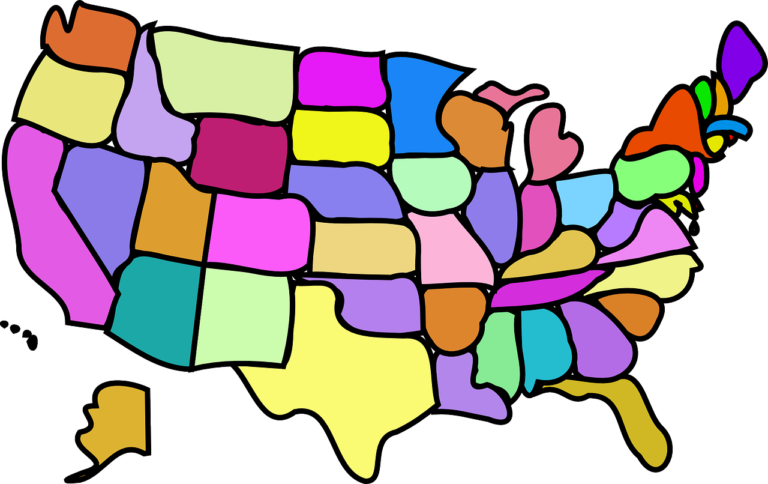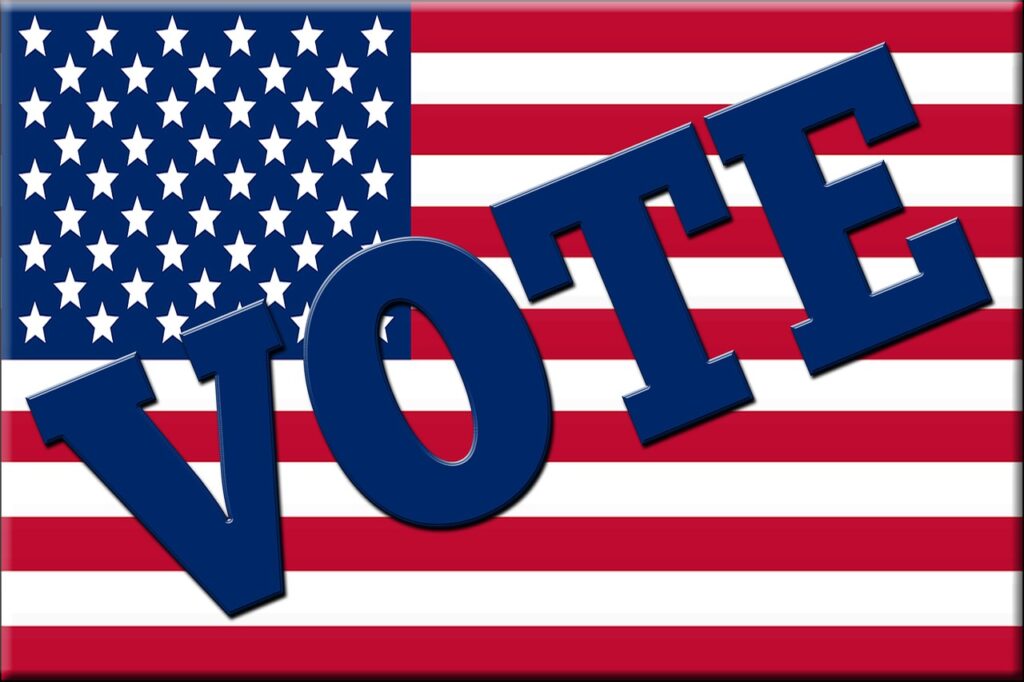WILL I BE ABLE TO VOTE WHILE LIVING OVERSEAS?

I must start by saying that this information is for citizens of the United States only, and I apologize for that, but if you are not a U.S. Citizen, this information won’t apply to you. If you are from another country, it’s likely that there is some avenue by which you can vote as well while abroad, but you should always check with the laws of your own country. Since I’m only familiar with voting laws that pertain to U.S. Citizens, I’d be doing a disservice if I tried to speak to any other circumstance.
Now that I got that out of the way…
The short answer to the question posed above in the heading is YES! You can vote while living overseas, and it’s actually not very hard. ALL overseas voters (to include military voters) have the right to use a special form which is historically called the “Federal Post Card Application (FPCA)”. This form is the same across all states and territories and it works as both a voter registration application, and absentee ballot application. That means that as a voter, you only need to file one form to register and/or request an overseas absentee ballot. It should be submitted for each election year in which you want to vote from abroad.
The best place to get all the information you need on overseas voting is from the U.S. Government website www.FVAP.GOV
The website will ask you to select your “State of Voting Residence” and will then ask you to select your “Jurisdiction”, which in most cases is the county that you are/were a resident of before moving overseas. From there it will direct you through the necessary steps in order to either register as a voter, or simply to request an overseas ballot when it comes time for the elections. (This includes all elections and primaries in your state throughout the election season.)
Michelle and I are residents of Florida, and Florida makes it very easy to vote. Whenever an election or primary is being held in our state, the elections office from Pinellas county emails us our overseas ballots, along with voting information that includes the due date to return the ballots back to them. Returning our ballots is simple. We don’t need to mail them back. Florida allows us to FAX them, so we have an online service that sends e-faxes whenever we need them. Once our ballots are filled out and signed, we simply scan them and upload them to the FAX service, and for a few dollars our ballots are faxed to our elections office in Pinellas County, Florida. Within 24 hours of receiving our ballots, Pinellas Country emails us to notify us that they received them. From there we can check the status of our ballots through their website, all the way through the election.
For those who know us, you know that we retired while living in Virginia. So how did we become residents of Florida (since we’ve only been there for a total of about 75 days) prior to moving to Ecuador? And why did we choose Florida over Virginia for our residence status?
I’m going throw this valuable information in for free at no cost to you as my gift to you for reading my blog!

A FEW STATES HAVE NO STATE INCOME TAX!
As of 2023, Alaska, Florida, Nevada, New Hampshire, South Dakota, Tennessee, Texas, Washington and Wyoming are the only states that have no state income tax. As a retiree, it was important to me to keep as much of my pension as possible, so before I retired I started doing research. I was determined to make one of these “tax free” states my residence in order to not have to pay state income tax. I learned that a few of these states make it a bit less complicated than others to become residents. Probably the easiest one I know of is South Dakota. (There you only need to have a hotel receipt and register your car. From there you can register to vote and that qualifies you as a resident.)
Florida was another one of the states that made it relatively simple to become a resident. We were planning on making Florida our first destination when we retired, so this seemed like the most natural choice.
But just because someone wants to select one of these states as their residence, does that mean they no longer need to pay taxes in the state from which they left? Technically no. For instance, some states (Virginia in particular) makes it very hard to declare another state as your residence. If you own any property in Virginia at all, no matter in which state you claim as your residence, Virginia will still claim you as their resident and continue to expect you to pay state income tax to them. Thankfully, Michelle and I didn’t own anything in Virginia and so we had nothing there in which Virginia could sink its hooks in to, and therefore we could make a clean break from them.
But what were the steps then that we needed to take in order to make Florida our domiciled residence?
- We established a virtual mailing address in Florida a few months before we left Virginia. I explained the process of getting a virtual mailing address in my blog titled “How Do We Get Our Mail?”
- We used this address to update our banking information online so that we would begin receiving bank statements at that new Florida address.
- When we arrived in Florida, we changed our address for our car insurance to the virtual Florida mailing address.
- We took the bank statements (with the Florida address), along with our proof of car insurance (which also now showed our Florida address) to the DMV and registered our car in Florida.
- All of the above then allowed us to get our Florida driver’s license.
- After getting our Florida driver’s license, we registered to vote. This was the only place that wouldn’t allow us to use the virtual mailing address. We fixed this by using our Airbnb apartment address since we were there for 30 days. (This is perfectly legal, by the way since it was in fact our residence address for that month)
- Once our voter registration was approved, we were bona fide Florida residents and no longer needed to pay state income tax!

In Closing
One important thing to remember if you are overseas and are filling out your Federal Post Card Application (FPCA), your voting residence is not a place where you stayed temporarily, nor is it the home of a relative or where you might continue to receive post in the U.S., rather it is the last home residence that you lived in and moved from prior to living abroad. You don’t need to currently own or visit your voting residence address – it is simply your address for voting purposes. For an election official in the U.S., even if you are living overseas for decades already, they consider your voting residence address as your U.S. address. For Michelle and I, the address that we are required to use is the AirBnb address where we lived for 30 days in St. Petersburg, Florida. This will be the address we use as long as we don’t return to the U.S. and set up another residence.
If, for example, you currently live in Chiang Mai, Thailand, then your voting address will be the last residence at which you lived in the United States before you relocated overseas. This is true whether you have moved due to military service, as a college student, retiree, or for some other reason.
I hope I’ve been able to answer any questions you might have on overseas voting. It’s really very easy, and I’m amazed that I know many ex-pats who really have no idea how to do this. I’m in a considerable number of ex-pat Facebook groups and every election cycle there are people who don’t know what to do. There are groups who sort of target ex-pats who offer help with requesting overseas ballots and to offer assistance with registering to vote, but really there isn’t any need for this. This is one thing that the Government has made easy and relatively pain free.
If you do have any questions, please feel free to submit a comment below. I’d be happy to answer anything that I might have missed.
Until next time, safe travels everyone!

